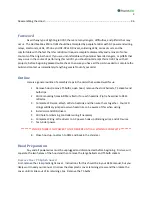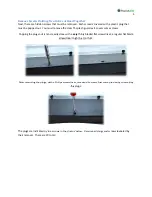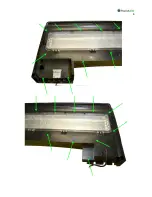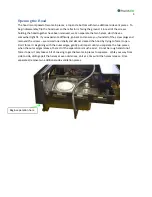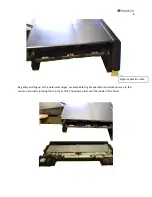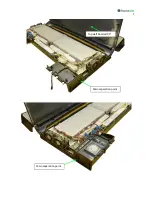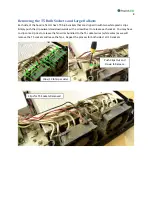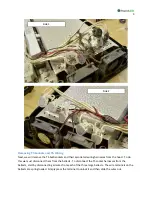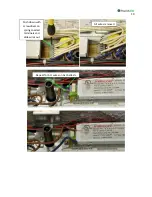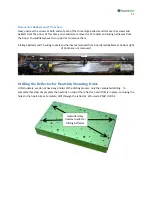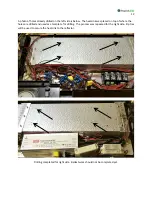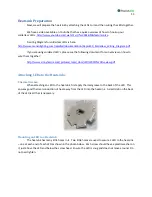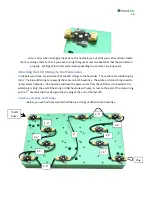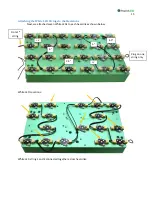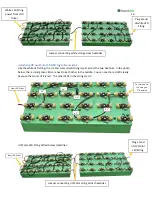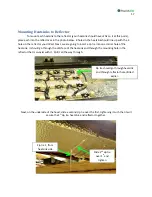
2
Reassembling
the
Hood
..............................................................................................................................
36
Foreword
As
with
any
type
of
lighting
retrofit,
there
are
many
dangers,
difficulties,
and
pitfalls
that
may
occur.
The
Red
Sea
Max
250
retrofit
should
be
attempted
by
people
familiar
with
AC
power
and
wiring,
relays,
electronics,
LEDs,
off
‐
Line
and
DC
‐
DC
LED
Drivers,
soldering
LEDs,
series
circuits,
and
be
comfortable
with
the
fact
that
this
retrofit
will
require
complete
disassembly
and
removal
of
some
contents
of
the
original
hood.
If
you
are
uncomfortable
with
potential
hazards,
dangers,
or
pitfalls
that
may
occur
in
the
course
of
performing
this
retrofit,
you
should
not
attempt
this
retrofit.
As
with
all
projects,
before
beginning
please
double
check
to
ensure
you
have
all
the
parts
needed
to
complete
the
build
and
contact
us
immediately
if
anything
was
left
out
of
your
order.
Outline
Here
is
a
general
outline
of
assembly
steps
in
the
order
that
worked
well
for
us:
1.
Remove
hood,
remove
T5
bulbs,
open
hood,
remove
the
stock
ballasts,
T5
sockets
and
bulb
clips.
2.
Drill
4
mounting
holes
in
RSM
reflector
for
each
heatsink.
Zip
tie
heatsinks
to
RSM
reflector.
3.
Complete
LED
work:
attach
LEDs
to
heatsink
and
then
wire
them
together.
Your
LED
strings
will
likely
jump
across
two
heatsinks,
so
be
aware
of
this
when
wiring.
4.
Install
HLG
and
LDD
drivers.
5.
Drill
hole
for
dimming
controller
wiring
if
necessary.
6.
Complete
Wiring:
Wire
drivers
to
AC
power,
hook
up
dimming
wires,
and
LED
wires.
7.
Test
under
power.
********
ENSURE
THERE
IS
NO
POWER
TO
THE
DRIVERS
UNTIL
ALL
WIRING
IS
COMPLETE
********
8.
Close
hood
up,
re
‐
attach
to
RSM
and
bask
in
the
shimmer.
Hood
Preparation
Any
and
all
power
wires
must
be
unplugged
and
disconnected
before
beginning.
First
we
will
separate
the
two
halves
of
the
hood
and
then
remove
the
large
ballasts
and
T5
bulb
sockets.
Remove
Clear
T5
Splash
Guard
First,
remove
the
clear
plastic
light
cover.
Instructions
for
this
should
be
in
your
RSM
manual,
but
you
likely
won’t
need
your
manual.
Unscrew
the
clear
plastic
cover
retaining
screws
and
then
rotate
the
cover
until
it
slides
out
of
its
retaining
clips.
Remove
the
T5
bulbs.
Содержание Red Sea Max 250 Retrofit
Страница 4: ...4 ...
Страница 7: ...7 Main separation point Main separation point Top Half Rotated 90 ...
Страница 20: ...20 Your completed zip tie wiring will look similar to this ...
Страница 33: ...33 Step 4 Attach dimming wires to LDD H 4 Driver Board ...
Страница 37: ...37 ...


